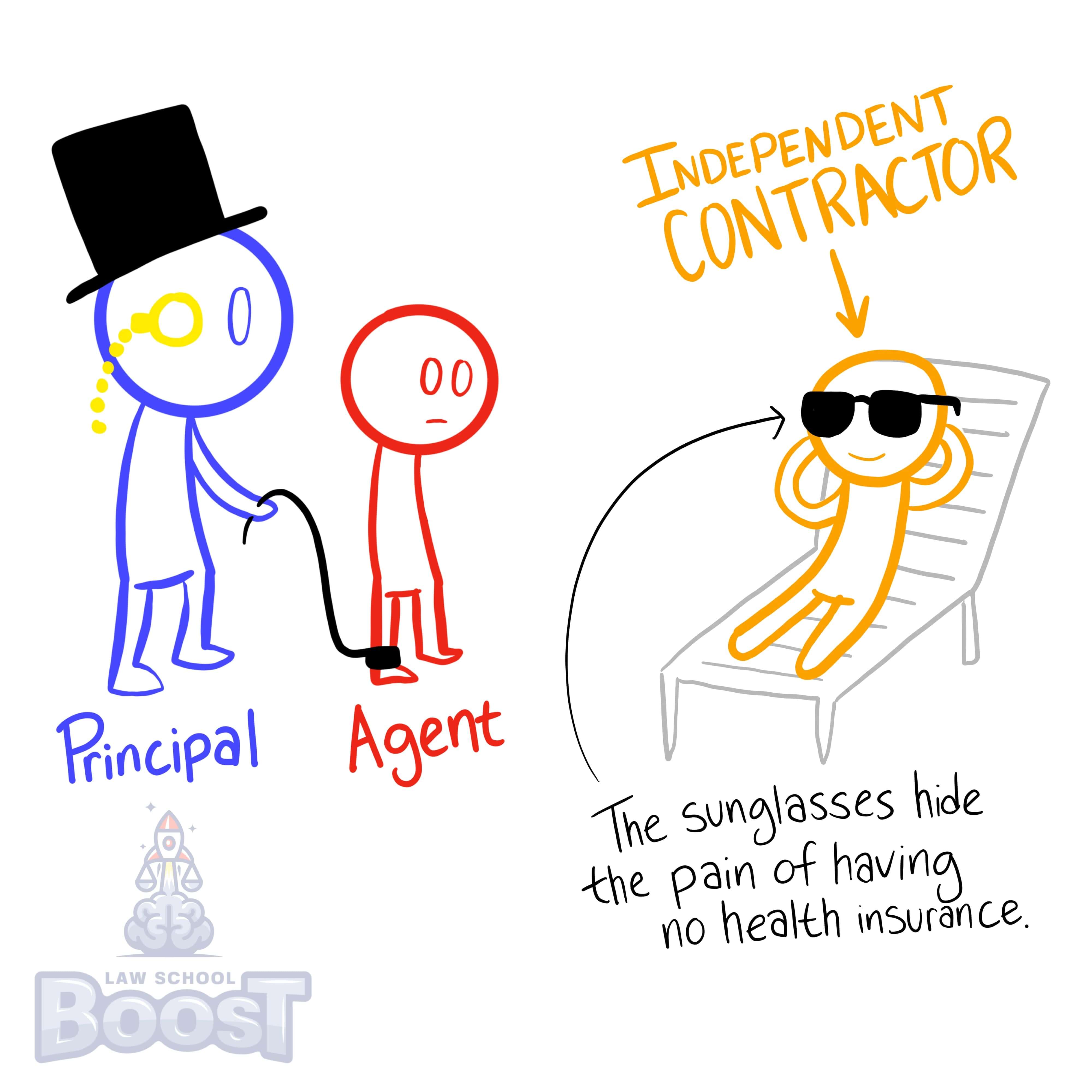❤️
Agency • Liability of Principal for Agent's Torts
AG#005
Legal Definition
A principal is generally not liable for the torts of an independent contractor unless either: (1) the independent contractor is engaged in inherently dangerous activities, or (2) the duty is non-delegable.
Plain English Explanation
The only time the law is willing to impose liability on a principal for the torts of an independent contractor are when their job was either inherently dangerous, or if their job is so important to the safety of an operation that it is considered a "non-delegable duty."
Hypothetical
Hypo 1: Bob has a large tree in his yard he would like to be removed. Bob hires Sam to cut the tree down. While Sam is cutting the tree down, it falls on Bob's neighbor, Amy, crushing her leg. Result: Felling a large tree is inherently dangerous, thus Bob is liable even though Sam is merely an independent contractor.
Hypo 2: Bob owns a supermarket. Bob hires a cleaning service to come and clean his floors every day. One day, Amy slips and falls on a puddle of water that the cleaning service failed to clean. Bob says, "Man, that really sucks. But it's not my fault because I hire someone to do this." Result: Having safe floors is a non-delegable duty. Though Bob has every right to hire an independent contractor to assist in keeping his floors clean, he can not delegate the obligation. In other words, Bob will always be liable for the safety of his supermarket, even if it is made dangerous by an independent contractor's negligence.
Hypo 2: Bob owns a supermarket. Bob hires a cleaning service to come and clean his floors every day. One day, Amy slips and falls on a puddle of water that the cleaning service failed to clean. Bob says, "Man, that really sucks. But it's not my fault because I hire someone to do this." Result: Having safe floors is a non-delegable duty. Though Bob has every right to hire an independent contractor to assist in keeping his floors clean, he can not delegate the obligation. In other words, Bob will always be liable for the safety of his supermarket, even if it is made dangerous by an independent contractor's negligence.
Visual Aids


Related Concepts
Generally, when are an agent's actions within the scope of a principal-agent relationship?
What are the requirements for a principal-agent relationship to be established?
What is the difference between a frolic and a detour?
When are intentional torts considered within the scope of an agency relationship?
When is a borrowing principal liable for torts committed by a borrowed agent?
When is a principal liable for torts committed by a sub-agent?
When is a principal vicariously liable for torts committed by its agent?


